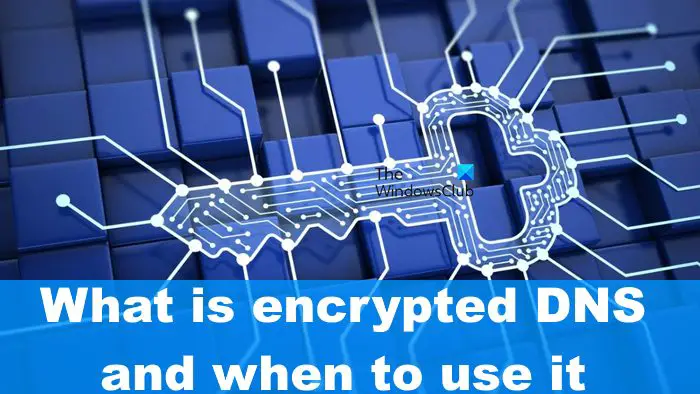You have heard of the term, Encrypted DNS, but do you know what it’s all about, and how to use it when the time comes? Not many people think they should know about encrypted DNS, but if you browse the web often, you should have an idea.

For those unaware, DNS, which stands for Domain Name System, is an important part of the internet. It makes it possible for folks to use special names to access resources on the web. Now, all of the data which comes in the form of DNS queries, are in most cases recorded by your ISP, or Internet Service Provider, if you want to sound professional.
Bear in mind that others outside of your ISP can gain access to the data to keep tabs on your network activity throughout the day.
When it comes down to protecting your DNS queries, it makes sense to use an encrypted DNS service at all times.
What is Encrypted DNS?
DNS queries include all the website addresses you visit along with the associating information, such as port, IP address, and more. However, these queries are unprotected by default, and as such, open for attackers to take advantage of them.
This is where an Encrypted DNS comes into play, as it can keep the queries private from the prying eyes of your ISP and possible attackers. In some situations, you can eliminate the need for a VPN by unlocking access to certain services with an encrypted DNS.
Now, we should point out that there are two popular connection protocols that are tied to encrypted DNS. They come in the form of DNS over HTTPS and DNS over TLS. There are a few that supports DNSCrypt, but this is an older protocol so it might not be able to secure the DNS connection in the best way possible.
Still, you can find out for yourself by testing each option to see which one works best for you in the long run.
When to use Encrypted DNS?
When is the best time to use encrypted DNS? If an encrypted DNS is not put to use, then hackers could manipulate you into browsing a fake website designed to collect your personal data. So as it stands, if you want to keep browsing the web in a secure environment, and a basic way to get around firewalls in a bid to unblock access to sites you specify, then an encrypted DNS is your best friend.
There are services that offer a way to block encountered trackers when browsing the web. The thing is, if you use an extension for your browser that blocks online trackers, then there is no need to use such services in the first place.
Also, if you choose to use an encrypted DNS, then you may find it difficult to use a VPN service at the same time, and it doesn’t matter if you’re using a smartphone or a computer. Sometimes it is best to use unencrypted DNS, but you must figure out when to do so and if the best decision is being made at that time.
What are some of the best Encrypted DNS providers?
The web is filled with various free Dynamic DNS services that allow folks to take control of their home network. But not all of them support encrypted DNS to keep the DNS queries private at all times, so with that in mind, let us showcase some of the best providers.
READ:
Are DNS queries encrypted?
DNS over both DoT and TLS is the standard for encrypting DNS queries to keep them safe, secure, and, most importantly, private. Note that TLS uses the same security protocol as DoT, which is similar to that of HTTPS, the standard used to authenticate and encrypt websites.
Can DNS be used to support encryption?
Yes, DNS can be used to support encryption using DNS over HTTPS, which is also known as DoH. With this, the communication between your server and the computer is secured. No one will have the means to intercept the data being sent.
Leave a Reply